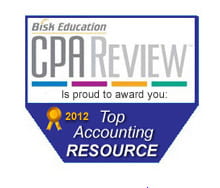Berkshire Hathaway Is Undervalued On A Price/Book Value Basis
Summary
Berkshire Hathaway is undervalued on a price/book value basis.
Berkshire’s price/book value is compared over the past 30 years.
Berkshire’s current price/book value of 1.31 is 17% below its 30-year average of 1.58.
This article is an update to my 2011 Seeking Alpha article, “Berkshire Hathaway Is Undervalued on a Price/Book Value Basis.”
In Warren Buffett’s 2014 Letter to Shareholders released on February 27, 2015, Buffett states that his measure of performance for Berkshire Hathaway (NYSE:BRK.A) (NYSE:BRK.B), book value, is an understated proxy for intrinsic value. Furthermore, he states that in earlier decades, the relationship between book value and intrinsic value was much closer than it is now. That was true because Berkshire’s assets were then largely securities whose value was marked to market.
However, in recent years, Berkshire has focused on owning and operating large businesses that are worth far more than their book value. “Consequently, the gap between Berkshire’s intrinsic value and its book value has materially widened.” This would imply that Berkshire’s price/book value should be increasing in recent years if it is approximating its intrinsic value.
In the table below, I show for each year from 1985 through 2015, Berkshire’s book value per share and market price per share of its class A shares (year-end values except for 2015), as well as its annual price to book value ratio. From this table, it can be seen that Berkshire’s current (September 4, 2015) price to book value ratio of 1.31 is 17% below its 30-year average of 1.58. Indeed, in only five of the past 30 years has this ratio been lower than its current value. (In 2009, 2010, 2011 and 2012, the ratio was lower as the economy was recovering from the 2007-9 Financial Crisis, and in 1987, it was lower after the Stock Market Crash of 1987.)
Warren Buffett has previously stated that he would buy back shares when Berkshire’s price to book value is below 1.20. With the current price to book value of 1.31, Berkshire is only 9% above its effective “floor.” Since Berkshire’s price to book value ratio is also substantially below its historical average of 1.58, and with the gap between its intrinsic value and book value widening over time, Berkshire Hathaway is undervalued.
| Year | Book Value | Price | Price/Book Value |
|---|---|---|---|
| 2015 | 149,735 (June 30) | 196,501 (Sept. 4) | 1.31 |
| 2014 | 146,188 (Dec. 31) | 226,000 (Dec. 31) | 1.55 |
| 2013 | 134,973 | 177,900 | 1.32 |
| 2012 | 114,214 | 134,060 | 1.17 |
| 2011 | 99,860 | 114,755 | 1.15 |
| 2010 | 95,453 | 119,100 | 1.25 |
| 2009 | 84,487 | 99,200 | 1.17 |
| 2008 | 70,530 | 96,600 | 1.37 |
| 2007 | 78,008 | 141,600 | 1.82 |
| 2006 | 70,281 | 109,990 | 1.57 |
| 2005 | 59,377 | 88,620 | 1.49 |
| 2004 | 55,824 | 87,900 | 1.57 |
| 2003 | 50,498 | 84,250 | 1.67 |
| 2002 | 41,727 | 72,690 | 1.74 |
| 2001 | 37,920 | 75,600 | 1.99 |
| 2000 | 40,442 | 71,000 | 1.76 |
| 1999 | 37,987 | 56,100 | 1.48 |
| 1998 | 37,801 | 70,000 | 1.85 |
| 1997 | 25,488 | 46,000 | 1.80 |
| 1996 | 19,011 | 34,100 | 1.79 |
| 1995 | 14,426 | 32,100 | 2.23 |
| 1994 | 10,083 | 20,400 | 2.02 |
| 1993 | 8,854 | 16,325 | 1.84 |
| 1992 | 7,745 | 11,750 | 1.52 |
| 1991 | 6,437 | 9,050 | 1.41 |
| 1990 | 4,612 | 6,675 | 1.45 |
| 1989 | 4,296 | 8,675 | 2.02 |
| 1988 | 2,975 | 4,700 | 1.58 |
| 1987 | 2,477 | 2,950 | 1.19 |
| 1986 | 2,073 | 2,870 | 1.36 |
| 1985 | 1,644 | 2,470 | 1.50 |
| Average | 1.58 |



